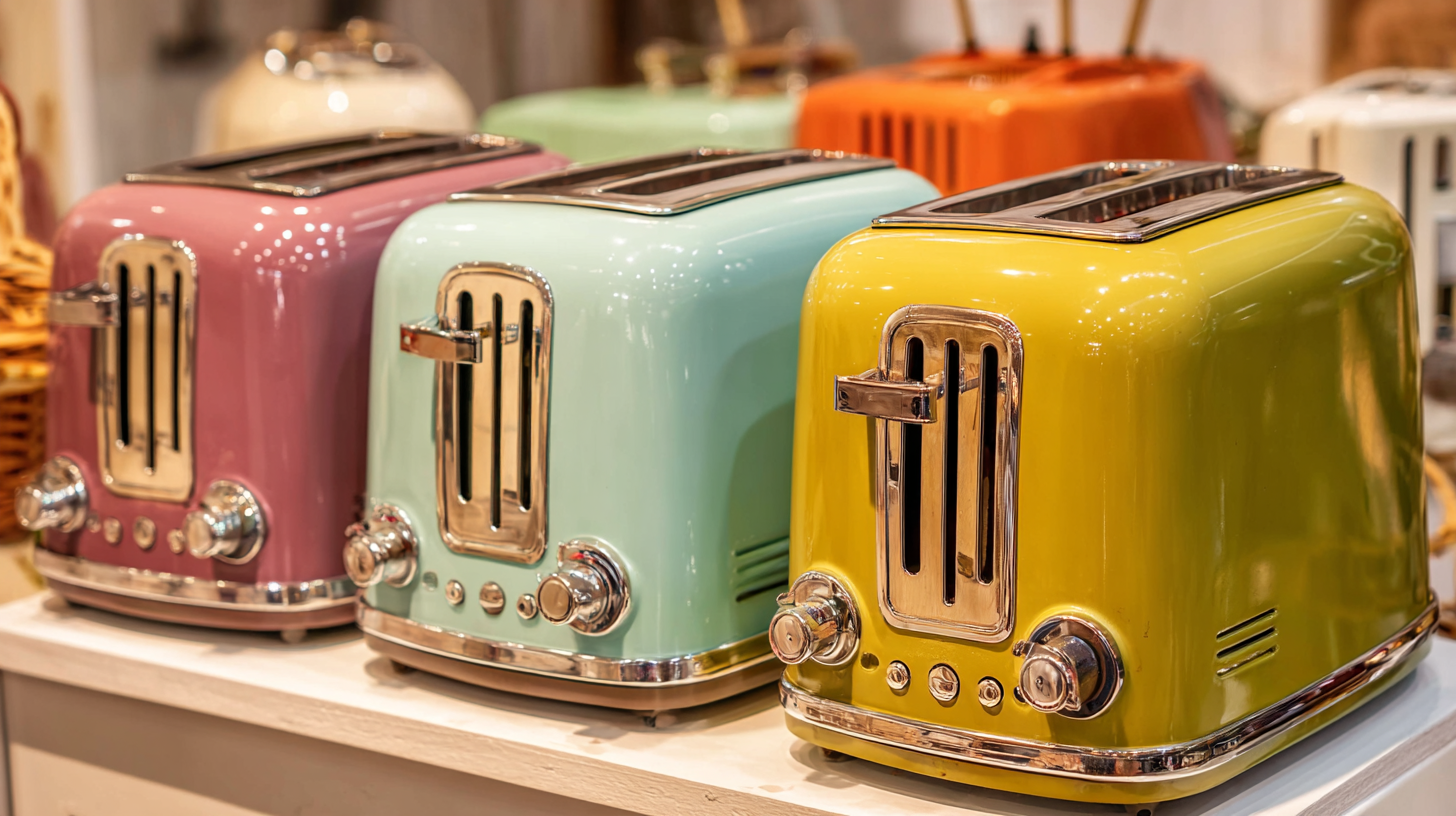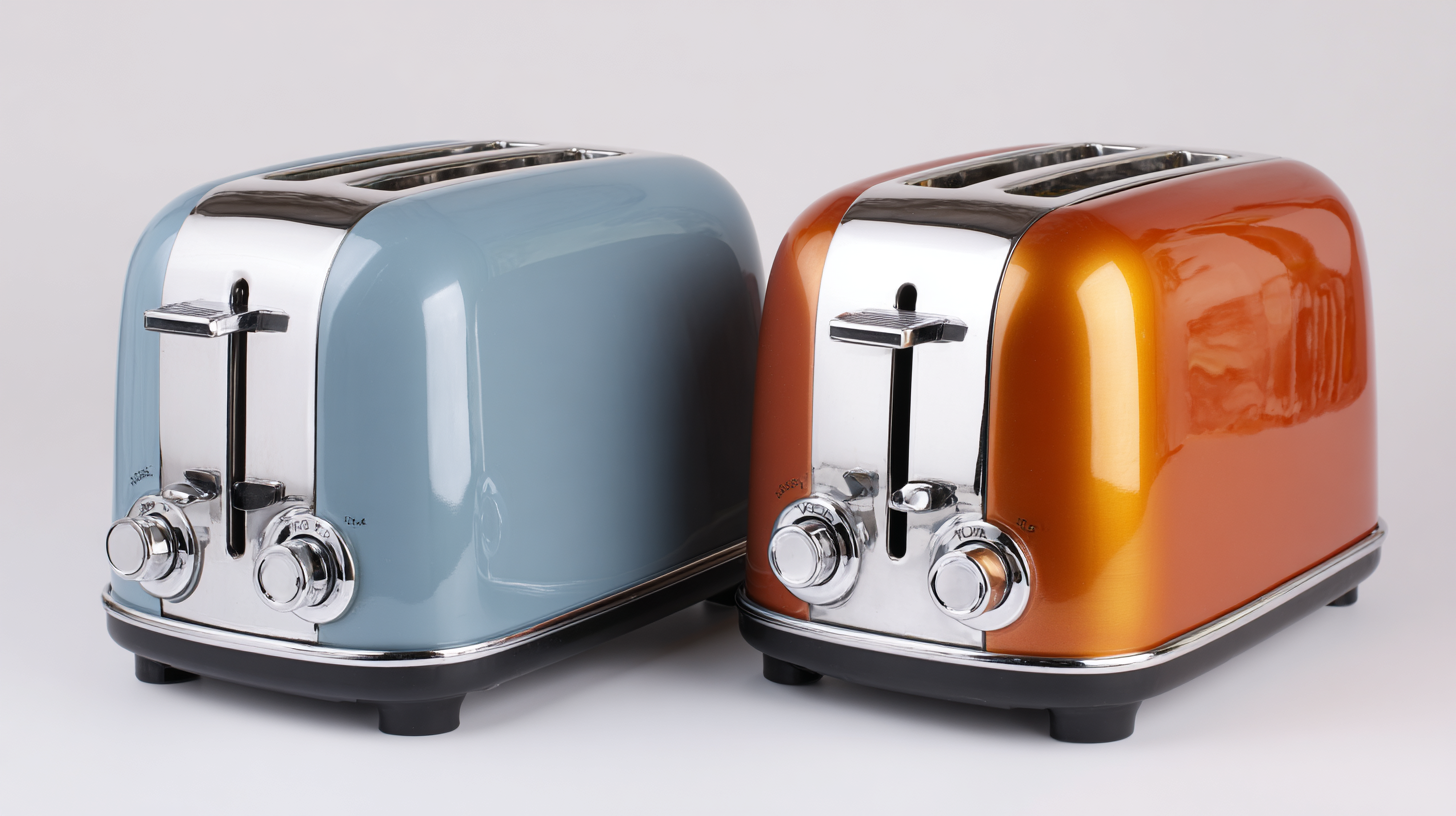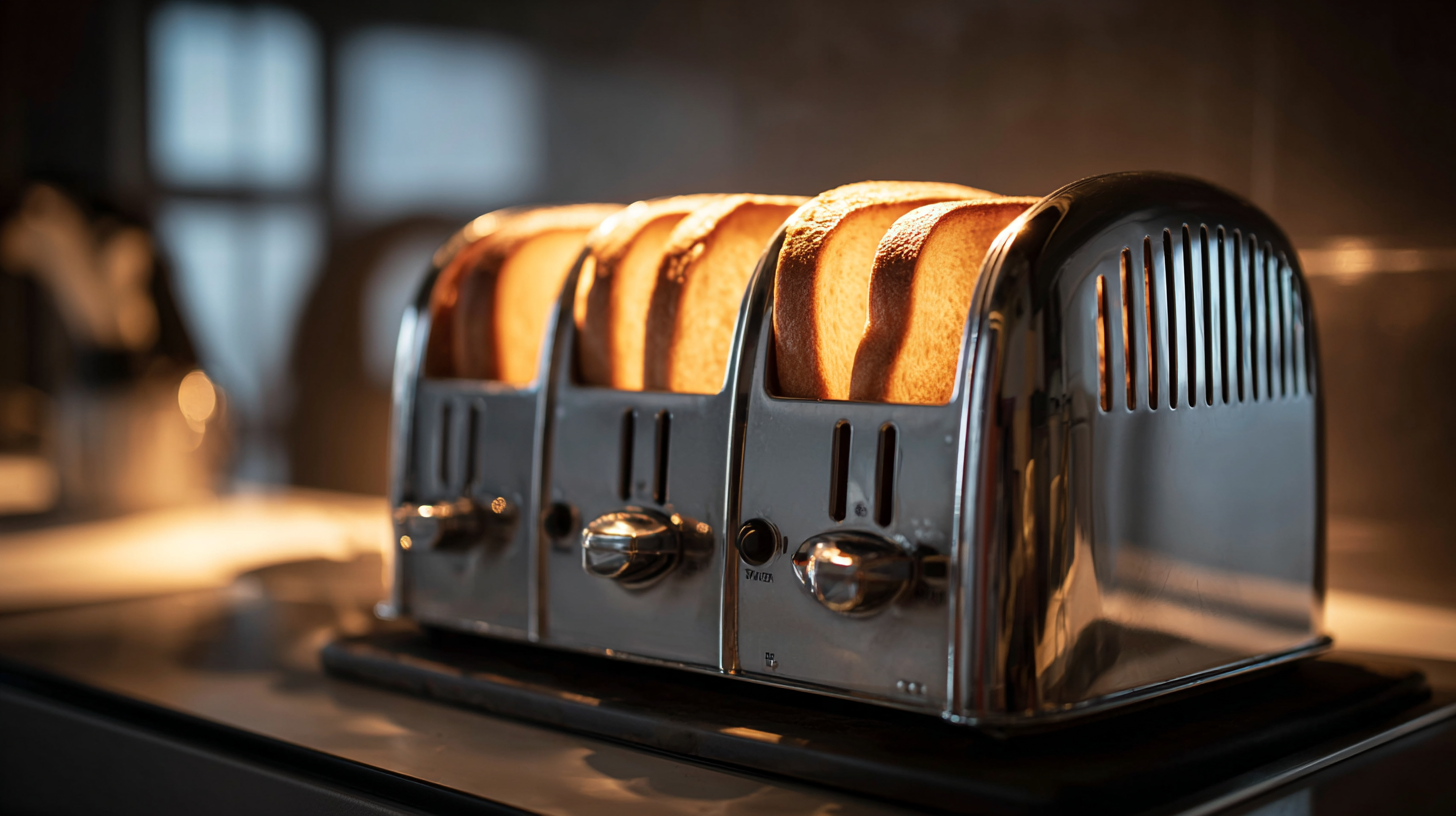- +86-13631182173
- sales@zsqeelin.com
- 8613631182173
When it comes to breakfast staples, the electric toaster stands out as a must-have kitchen appliance, delivering convenience and efficiency to our morning routines. However, not all electric toasters are created equal, and sourcing quality suppliers is crucial in ensuring that you offer the best products to your customers. The market is flooded with various types, each boasting unique features and price points, making it challenging for businesses to identify reliable sources.

This blog aims to provide essential tips for navigating the complexities of sourcing quality electric toasters, highlighting common problems associated with different types on the market. By understanding these challenges and knowing what to look for in a supplier, you'll be better equipped to make informed purchasing decisions and ultimately enhance your brand's reputation for quality.
The electric toaster market has witnessed remarkable growth in recent years, driven by changing consumer preferences and advancements in technology. According to a report by Market Research Future, the global electric toaster market is projected to reach $5.5 billion by 2025, expanding at a compound annual growth rate (CAGR) of 6%. This surge is fueled by an increasing inclination towards convenient kitchen appliances that cater to fast-paced lifestyles. Consumers today demand versatility, with features such as multiple browning settings, defrost functions, and even digital interfaces gaining popularity.
Moreover, as healthy eating trends continue to influence purchasing decisions, many consumers opt for whole-grain and gluten-free breads, which require reliable toasting solutions. An article from Statista reported that 67% of consumers prioritize energy efficiency and ease of use when selecting kitchen appliances. Consequently, manufacturers are responding to these trends by introducing innovative designs and smart toasters equipped with features like smartphone connectivity and customizable settings. As the market evolves, suppliers who prioritize quality and adaptability will be essential in meeting the growing demands of modern consumers.
When sourcing quality electric toasters, there are several key features to consider to ensure you are providing a top-notch product to consumers. According to market research, the global toaster market is expected to grow from $4.26 billion in 2025 to $6.54 billion by 2032, with a compound annual growth rate (CAGR) of 6.33%. This growth is largely driven by an increasing demand for kitchen appliances that offer convenience and efficiency in cooking.
One essential feature to look for in high-quality electric toasters is the heating technology employed. Toasters with advanced heating elements, such as quartz or ceramic, provide more even and faster toasting compared to traditional wire elements. Additionally, the capacity of the toaster is crucial; models that accommodate wider slots can cater to various bread types, including artisanal varieties. Furthermore, smart features, such as digital controls and customizable settings, are becoming increasingly popular, aligning with consumer preferences for more personalized cooking experiences.
Lastly, considering durability and design is vital, as consumers are inclined to invest in products that not only perform well but also enhance their kitchen aesthetics. The European small kitchen appliance market is projected to grow at a CAGR exceeding 4.8% from 2024 to 2032, fueled by innovation in product design and a shift towards premium kitchen solutions. Investing in suppliers that prioritize these features can significantly elevate your product offerings in a competitive market.

When sourcing quality suppliers for electric toasters, understanding supplier certifications and quality standards is critical. Recent developments, such as the stringent actions taken by regulatory bodies against manufacturers selling non-compliant products, highlight the importance of verifying supplier credentials. For instance, rigorous inspections have led to significant consequences, such as the cancellation of registrations for suppliers that failed to meet established standards. This showcases the necessity for buyers to partner with suppliers who not only adhere to industry regulations but also demonstrate a commitment to maintaining high quality.
Furthermore, the ongoing trend of localization in manufacturing emphasizes the need for buyers to consider suppliers that provide verifiable certifications. This could be particularly important in markets facing potential shortages due to ineffective compliance measures. Companies that invest in certified quality systems not only ensure a steady supply of compliant products but also mitigate risks associated with sourcing from low-quality vendors.
As suppliers strive for excellence and recognition, finding those who are honored for their outstanding performance can be a strategic advantage in the appliance sector, ensuring that the end products are not only functional but also reliable and safe for consumers.
When sourcing electric toasters, the balance between cost and quality emerges as a critical consideration. According to a recent industry report by Grand View Research, the global market for electric kitchen appliances is projected to reach $64.81 billion by 2025, reflecting a growing consumer preference for high-quality, durable products. However, many suppliers may offer attractive low-cost options that compromise on performance and lifespan. It’s essential to assess whether the savings on initial purchase costs could lead to higher long-term expenses due to frequent replacements or repairs.
Tip: Conduct thorough market research by comparing different suppliers' offerings. Look for certifications such as ISO or relevant quality marks that establish credibility and reliability in manufacturing practices. Suppliers with comprehensive warranty options often indicate a commitment to quality, ensuring that you invest in products that deliver value over time.
Furthermore, it’s vital to evaluate the materials used in the manufacturing process. Products made from high-grade stainless steel or BPA-free plastics will generally outperform cheaper alternatives, which can contain harmful chemicals and degrade quickly. According to a report by Statista, approximately 40% of consumers consider durability as a key purchasing factor when selecting kitchen appliances. This trend underscores the importance of sourcing electric toasters from suppliers committed to both cost-effectiveness and quality.
Tip: Always request samples from potential suppliers to assess both the material quality and functional performance. This hands-on approach allows you to make more informed decisions based on actual product experience rather than relying solely on supplier claims.

In today's environmentally conscious market, choosing eco-friendly toaster suppliers is crucial for both consumers and retailers aiming to make sustainable choices. As reported, 70% of consumers now prioritize quality and durability over price, indicating a growing desire to invest in well-made, lasting products. When sourcing toasters, it is essential to evaluate suppliers who implement sustainable manufacturing practices that minimize environmental impact, such as using recycled materials or optimizing energy efficiency during production.
**Tip 1:** Look for suppliers who possess certifications related to sustainability, as these can serve as indicators of their commitment to environmentally friendly practices. This could include adherence to ISO standards or involvement in programs aimed at reducing carbon footprints.
**Tip 2:** Engage with suppliers that practice responsible sourcing of materials, ensuring that components are not only durable but also obtained through ecologically sound methods. This helps in reducing pollution and supports ethical labor practices.
By actively seeking suppliers who align with these eco-conscious principles, businesses can contribute to a greener future while meeting rising consumer expectations for sustainable products.
| Feature | Importance Level | Supplier Rating | Eco-Friendly Practices |
|---|---|---|---|
| Heating Efficiency | High | 4.5/5 | Energy-saving Technology |
| Durability | Medium | 4.0/5 | Recyclable Materials |
| Safety Features | High | 5.0/5 | Non-toxic Coatings |
| User-Friendly Controls | Medium | 4.2/5 | Low Energy Consumption |
| Affordability | Medium | 4.3/5 | Sustainable Sourcing |
